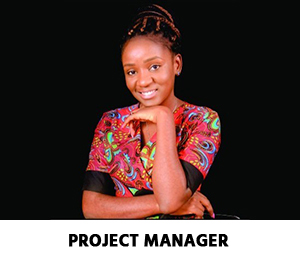Project Lubuto
Vision: To create an environment that empowers guardians of parents with special needs children with the tools to improve their quality of life.
What?
ProjectLubuto seeks to empower parents and guardians of children with intellectual disabilities through the creation of awareness around the types of intellectual disabilities (with a focus on Cerebral Palsy, Autism and Attention Deficit and Hyperactivity Disorder) so that there is sufficient knowledge of what they are dealing with from the beginning. This will focus on the need for immediate intervention once the child is diagnosed and the realization that therapy would have to be 24/7/365. It is anchored on the following objectives:
- To establish a center that will offer Applied Behavior Analysis (ABA) Therapy, Anat Baniel Method (ABM) Therapy and Hyperbaric Oxygen Therapy among others.
- To train parents and caregivers on the basics of how to take care to take care of children with special needs.
- Facilitate the creation and approval of a homeschooling curriculum.
- Advocacy & awareness for mainstreaming of children with special needs into typical schools. .
Why?
Having a child with cerebral palsy has opened a new window of revelation to the many challenges our children with special needs, parents, caregivers, and therapists go through. With limited resources, information, and expensive therapies it makes it almost impossible to give a second chance at life to these champions. We have been privileged to access expensive therapy for Lubuto using self-built methodologies which we now want to share with the rest of the world.
In September 2015, the United Nations General Assembly adopted the 2030 Agenda for Sustainable Development that includes 17 Sustainable Development Goals (SDGs). Building on the principle of “leaving no one behind”, the new Agenda emphasizes a holistic approach to achieving sustainable development. This 2030 Agenda holds a deep promise for persons with disabilities (PWDs) everywhere including our country, Zambia.
When you hear PWDs especially in my country, the first thought that comes to mind is either someone with a visual impairment, deaf, or handicapped. That is why most facilities referred to as “inclusive” only take into consideration the disabilities they are familiar with. Consequently, information about the same is scanty and unless parents are really determined to get the necessary help and have the necessary resources, the best alternative is to keep the child locked up at home, resulting into the need for “special care” for the rest of their lives. There is only a handful of speech, occupational and physical therapists in Zambia making it very difficult to access their service which comes at a very high cost.
We have realized that not many parents/guardians may be as patient, as inquisitive or may have the resources to take the necessary interventions to help their children amongst other competing needs. Most of the therapies that helped Lubuto could not be accessed from within the country, he had to be taken to South Africa to access the services whilst others were self-taught – not many parents have the knowledge or the income to do that; thereby disadvantaging the children.
How?
This is a huge pipeline project that will require a number of partners to come on board through grants of different forms of assistance and it will take a phased approach with the following high level initial activities:
- Construction of a 6 room double storey structure with a warm pool;
- Training of trainers in ABA and ABM therapy;
- Engagement of trained physical, occupational and speech therapists;
- Procurement of Hyperbaric Oxygen Chamber;
- Engagement of the Curriculum Development Center (CDC) in the formulation and approval of a Homeschooling Curriculum;
- Continued advocacy and stakeholder engagement.
When?
The land for the project was recently acquired and resource mobilization will commence in the second quarter of 2021. We are happy to learn from people that have gone before us and have experience in establishing similar centers.

